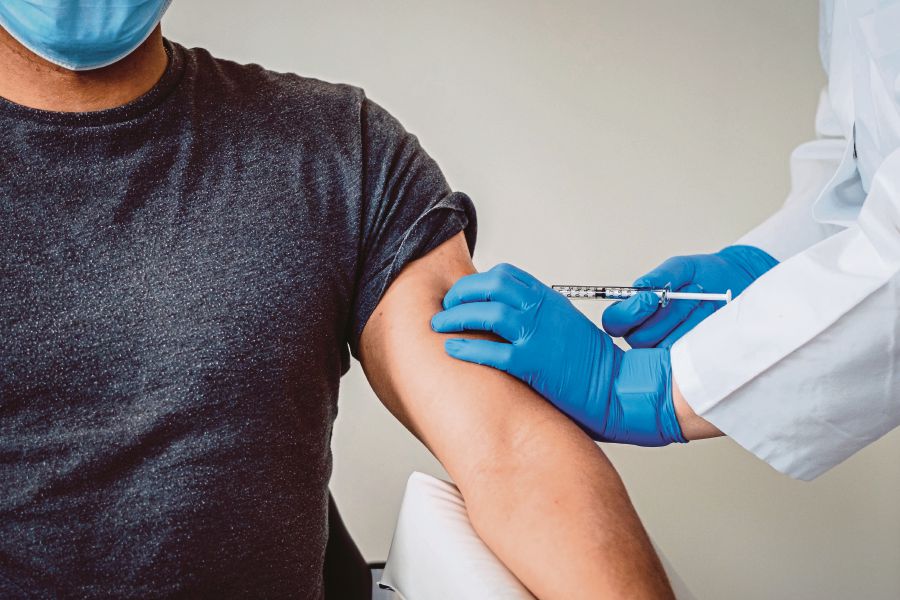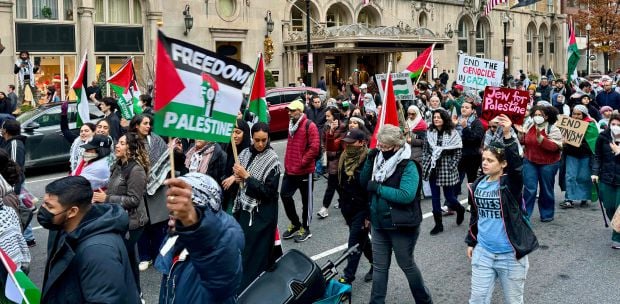LAST Sunday, my dear friend Datuk Chamil Wariya (chief executive of the Malaysian Press Institute) sent me a 4.4 minute video produced by The Guardian on the discovery of a new vaccine for Covid-19.
As I watched Sarah Boseley (health editor) speak of the discovery, I thought: "At last, our year-long lockdown will soon be over."
Then the realisation came. How soon can the vaccine reach and benefit the Malaysian public?
According to the video, Pfizer announced that its anti-coronavirus vaccine, developed in partnership with German company BioNTech, is 90 per cent effective. It is based on a technology that uses mRNA (messenger RNA) — a genetic code used to create proteins.
Instead of using part of the virus or an attenuated virus to stimulate the body's immune system, the mRNA vaccine is inserted into the cell, which is thought to be a lot safer.
The cell then produces the antigen encoded by the mRNA vaccine, which elicits an immune response through antibodies, and hopefully, memory T-cells as well.
Boseley added that if the vaccine is licensed, it will be the fastest to have been approved in history. It took less than one year, from the laboratory bench through "to use in humans".
On how the vaccine will be rolled out, the World Health Organisation (WHO) had stated that the most vulnerable people must be given priority. They include healthcare workers.
In the United Kingdom, priority will be given to care home residents and the people who work there because it has been obvious that they are at high risk of dying from this disease.
After that, it will be given to National Health Service (NHS) workers and the above 80s, and then progressively, younger age groups down to the age of 50.
On its "limitations and concerns", Boseley said they had yet to receive the full details of the clinical trial, so there are many things we do not know, including if it works differently in different age groups.
And we don't know how long the effects of the vaccination are going to last. More importantly, we don't know if the vaccine is going to stop the transmission of the disease.
Also, the vaccine must be kept "in ultra-cold chain" — in freezers at around -70°C to -80°C. That is going to be a problem in some areas as two doses of this vaccine are needed over three weeks.
Also, will life get back to normal? Boseley said "not so soon".
"We have a lot of people to vaccinate, and we don't know all the details of how this vaccine will work. We are on the road to normalcy, but we don't know how long that road is."
The Guardian's portal quoted Dr Simon Clarke, an associate professor of cellular microbiology at the University of Reading, as saying: "In the absence of any data from Pfizer and BioNTech, we have to take these very exciting claims at face value."
Professor Peter Horby of Oxford University, however, is delighted at the news. He said: "This feels to me like a watershed moment."
Expressing caution, UK Prime Minister Boris Johnson said: "We can't let our enthusiasm run away with us", urging the public to continue complying with the lockdown restrictions.
The UK has bought 40 million vaccine doses — enough for 20 million people because two doses are required, while the European Union has secured 200 million doses.
Pfizer and BioNTech had signed a US$1.95 billion contract with the United States government to deliver 100 million vaccine doses. The two companies said they will manufacture 50 million doses this year and a further 1.3 billion doses next year.
A Reuters report last June quoted Brazilian Health Minister Eduardo Pazuello as saying that his country was ready to sign a contract to produce a trial vaccine developed by Oxford University.
Researchers were hopeful that the vaccine would be ready by the end of this year. Brazil then had more than a million positive cases of Covid-19 and 51,000 deaths.
More than 170 vaccines are being developed by research teams in universities and laboratories around the world, with a few of them already being tried on humans. Pfizer and BioNTech appear to have won the race.
A visit to their official portal confirmed the breaking news, as announced on Nov 9.
The writer, a former federal counsel at the Attorney-General's Chambers, is deputy chairman of the Kuala Lumpur Foundation to Criminalise War






